Social Scene
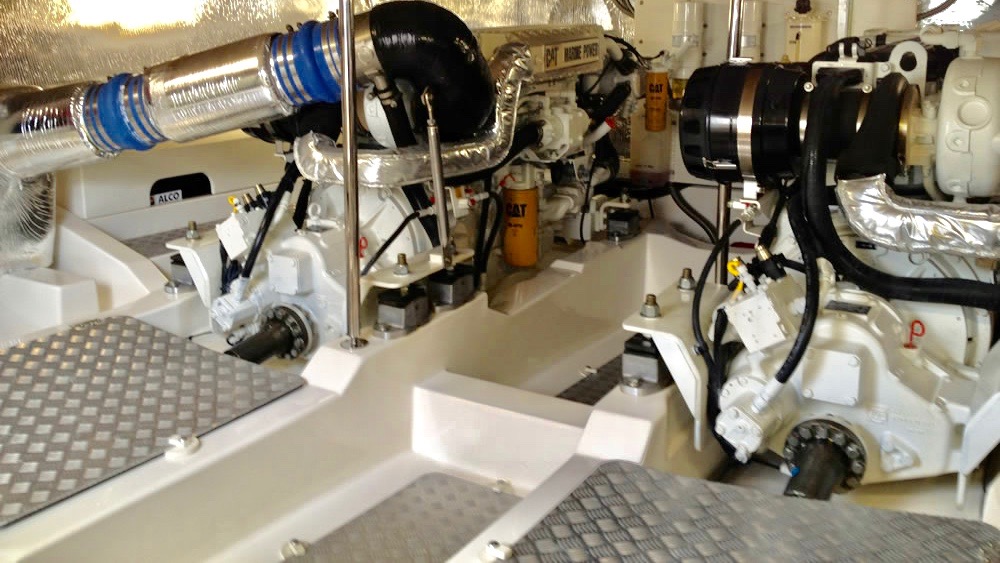
Boating Tip: Clean Your Engine Room
Have you heard the expression
“That engine room is so clean that you could eat off the deck”?
Well there’s a good reason keeping your equipment, engines and engine room space like that. Taking a stand and giving your engine room a makeover is more important than you might think.
“Who cares?” I hear you say.
Well, if your engines and generator are filthy dirty and corroded up, you won’t notice those simple tell-tale signs of things beginning to go wrong. The benefits include:
- Spotting leaks quickly and easily before problems increase
- Corrosion, damage and cracks become obvious
- Equipment life is maximised
- Smells that may waft into the cabins are minimised
- Your tradespeople will appreciate that you are making their job easier (you may incur less labour charges if they can do the job quicker)
- Minimising the impact on the environment
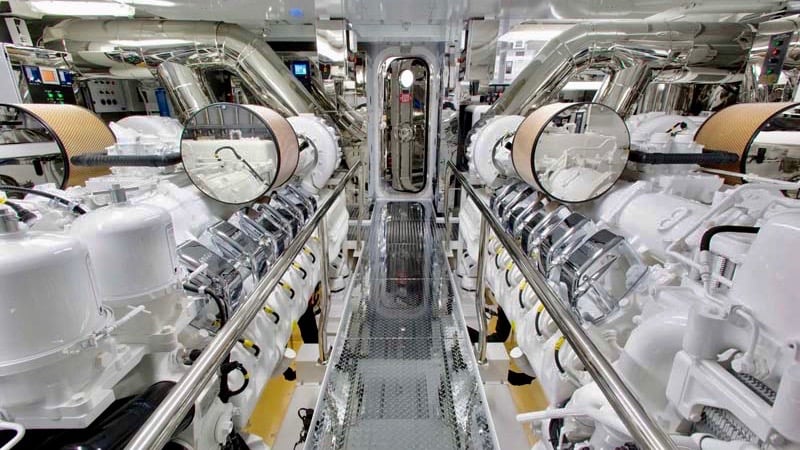
Mirror finish deck plates and engine components look shmick but aren’t necessary.
Drips or weeping fluids could indicate signs of a serious condition or the fix could be as simple as taking a screwdriver to a hose clamp – but you won’t notice these signs if your engine room and machinery isn’t keep clean.
Before you say that you don’t go down there, let me say that any boat owner who doesn’t perform regular engine room inspections is just asking for trouble.
Engineering spaces in boats come in varied sizes and shapes. Some have stand-up head room and others make you wish that you were born with a height deficiency! No matter how accessible your engine room is, don’t let that put you off regular inspections.
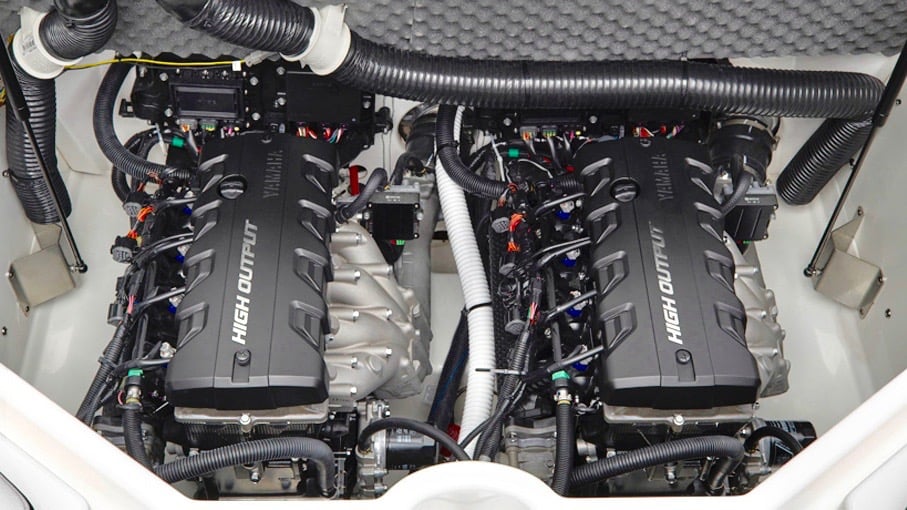
This twin engine setup in a small boat still offers some room around the engines.
Visual Checks
At a minimum, we recommend daily engine checks while you’re using your boat. Check out more about this in our article Boating Tip: Daily Engine Checks. While you’re down there and have time, cast your eye throughout the rest of the space as well looking for:
- Weeping joints
- Evidence of oil or hydraulic fluid on the deck or in the bilge
- Water where it should be dry
- Corrosion or cracks
- Loose or corroding battery terminals
- Missing or loose nuts, bolts or screws.
- Sounds or smells that are unusual
Don’t forget to check your raw water intake filters for your engines and generator if you don’t have a boat fitted with stern drives (out drives).
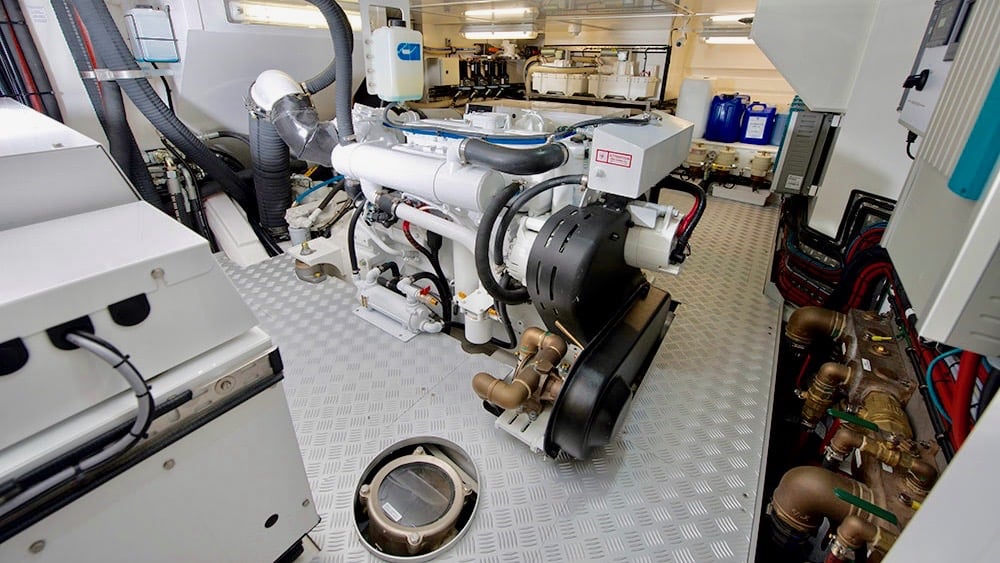
This engine room illustrates the amount of space that can be achieved in some cases.
Bilges
The lowest part of your boat’s hull usually forms the bilge in a recreational vessel. It’s a point where any fluids that run into the hull will collect. Often it’s seawater or rainwater from a variety of possible sources and gets safely pumped overboard by a bilge pump connected to a float switch that automatically switches it on once a preset level is reached.
What if one of your engines has an oil leak? This will likely end up mixed into the bilge water and get pumped overboard too. If the bilge in your engine room is filthy you probably won’t notice it while its a relatively minor issue. Especially if you never go down there.
Pumping oily bilge water into the sea is an environmental no-no (for which you can be fined) so consider placing oil absorbent pads under your engines and tie a couple of sausage shaped “bilge rats” in your main bilge to absorb any minor accidental spills before the pumps kick in.
If your boat is fitted with deck plates covering your bilges, make it a part of your visual engine room checks to lift them .
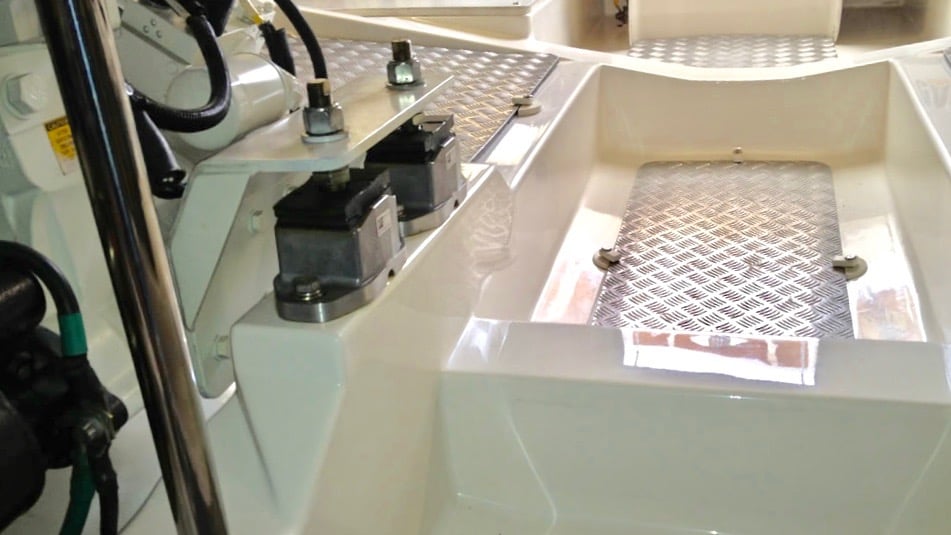
These deck plates are easy to remove and check beneath.
Regular Cleaning and Detailing
Now that you understand some of the benefits of keeping your engine room spotless, you should consider both the time it takes to complete and your physical ability to perform the work.
I imagine that many boat owners either don’t have the time to conduct this regular cleaning and detailing of the engine room, let alone the living spaces aboard, nor possibly are they young, flexible and still “bullet proof”.
It certainly takes some physical stamina to reach certain sections behind engines and other equipment in an environment that is usually very hot and uncomfortable. Many engine rooms have not been designed with anything more than space to fit machinery in mind. This is very short sighted in my opinion.
Professionals with the expertise in various techniques and the right equipment to perform the necessary upkeep in your engine room may be the answer for you. Consider engaging them to conduct regular engine room cleaning as part of your planned maintenance schedule.
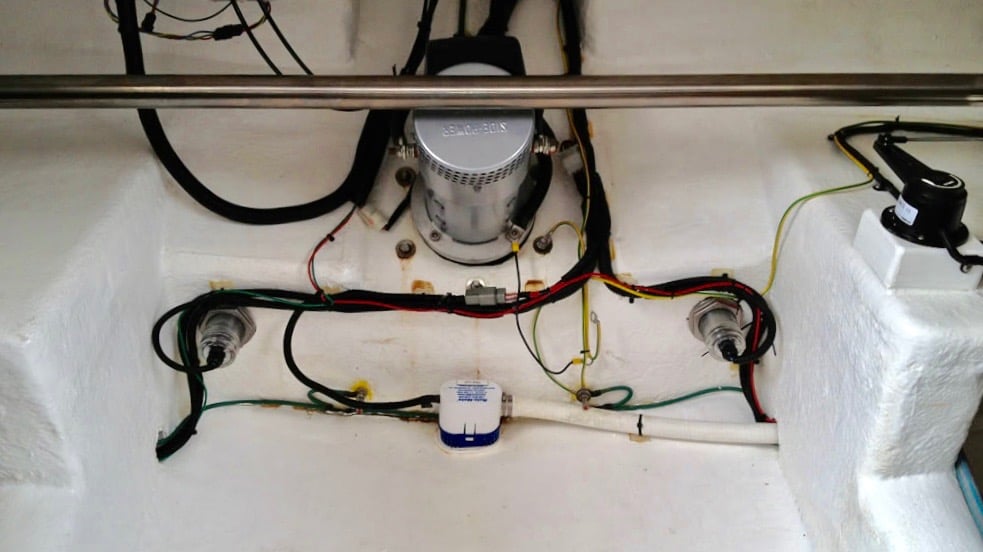
Finished in white gelcoat, this open bilge is one of the easiest types to inspect and keep clean.
If you would like some assistance to get your boat’s engine room sparkling, don’t hesitate to give us a call on +61 (0)2 8880 4088 or email at marine@standengroup.com.au
Author: Steve Williams | Standen Marine
Video: Standen Group Marketing
Photos: A1 Marine Total Care, Freemantle. Other photos remain the property of their respective owners. Please contact us for acknowledgment.